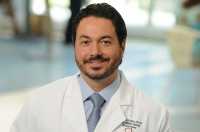Author Interviews, Duke, Heart Disease, JAMA / 21.03.2019
Most Cardiovascular Guidelines Not Supported By Randomized Clinical Trials
MedicalResearch.com Interview with:
Renato D. Lopes MD, MHS, PhD
Professor of Medicine
Division of Cardiology
Duke University Medical Center
Duke Clinical Research Institute
Alexander C. Fanaroff, MD, MHS
Division of Cardiology and Duke Clinical Research Institute
Duke University, Durham, North Carolina
MedicalResearch.com: What is the background for this study? What are the main findings?
Response: About ten years ago, a group of researchers examined the evidence supporting guideline recommendations in cardiology for the first time. Quite surprisingly, they found that only 11% of recommendations in American College of Cardiology/American Heart Association (ACC/AHA) guidelines were supported by evidence from randomized controlled trials, the highest level of evidence. The researchers called for greater collaboration among investigators and funders in identifying key research questions, development of streamlined clinical trial methods, and expansion of funding for clinical research. Over the past 10 years, some of these steps have been taken, but it is unclear how the evidence supporting guideline recommendations has changed.
We therefore analyzed the 51 current cardiovascular guideline documents -- 26 from the ACC/AHA and 25 from the European Society of Cardiology (ESC) -- including 6,329 recommendations.
Overall, 8.5% of recommendations in ACC/AHA guidelines and 14.3% of recommendations in ESC guidelines were supported by evidence from randomized controlled trials. When looking specifically at guidelines that have been updated, we found no significant changes in the proportion of recommendations supported by evidence from randomized controlled trials.
(more…)

